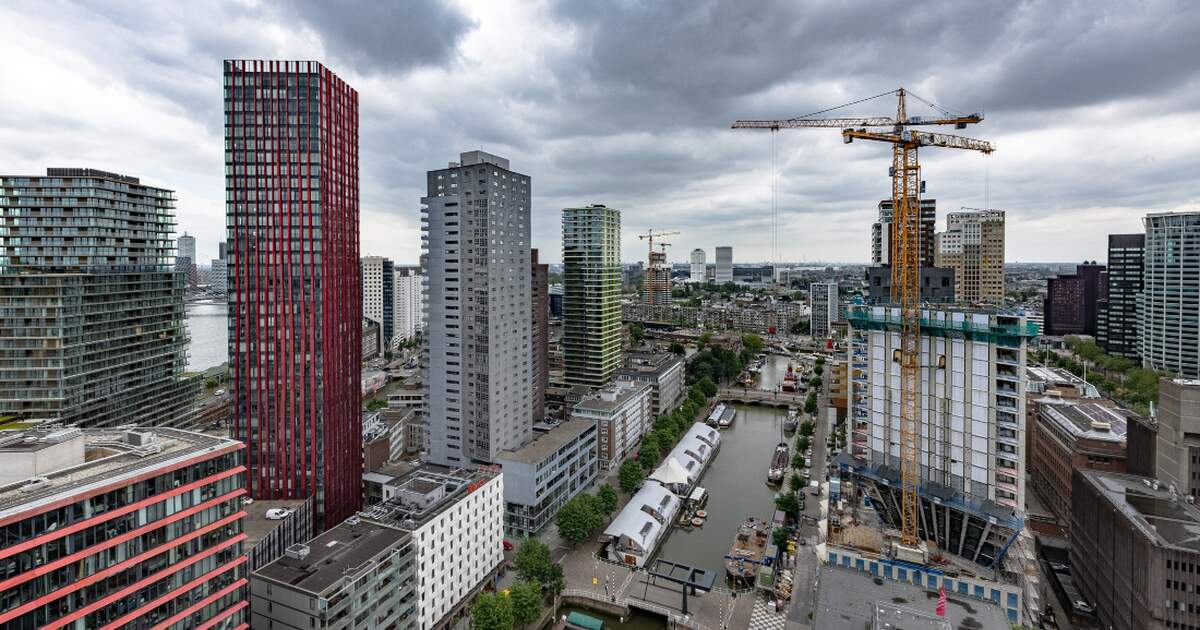So is the largest contributor to the problem just lack of land? Seems like most of the other problems from the article can be solved with money, but a lack of land makes it hard to build anything
I once calculated that if we reduce the land use for livestock by 50% and then use 10% of the newly freed land to build housing (the other 40% can become nature), we can build a city something like 1.5x times the size of Amsterdam, the largest city in the Netherlands.
It’s not a lack of land. It’s how the land is being used. Almost half is for livestock (or more accurate: to dump the shit of that livestock, as the majority of the animals is kept indoors).
Is the land the livestock are currently using capable of supporting dense housing and is it close to urban cores. Or would you just build sky scrapers in the middle of nowhere, because China tried that and it failed.
Anything in the Netherlands is close to an urban core.
They also have centuries of experience on building on lands that shouldn’t be capable of supporting dense housing. Amsterdam used to be a literal swamp as well (I’m not making any statements on its current status).
Haha I like your disclaimer, as it was indeed very inviting to reply with a “still a swamp” :)
So less food, more people? Have you heard the term “famine” before?
The Netherlands exports an enormous amount of meat currently. It’s the largest exporter of meat of any EU country. They export 60% of the meat they produce. So yeah, they would be fine.
The Netherlands is currently really suffering from nitrogen pollution, in a big part because of the meat industry. So it would also be a great improvement for the environment to reduce the meat production.
Having such a big part of the European meat production localized in one of the most populated regions in the EU is just a recipe for disaster.
Livestock are incredibly inefficient at producing food. If you use a small fraction of the land to grow crops there will be plenty to eat.
“Less food”? What are you talking about? Most of the land used for livestock is for exported meat. Also, meat is an incredibly unsustainable source of food.
Not up to the news of lab-grown meat.
map of land usage in the netherlands
See those red dots? Thats where people live. See the vast vast light green background? Thats agrictulture.
I think the three biggest contributors are:
- immigration
- nitrogen crisis not allowing to have as many houses built as we need
- seniors living at home longer instead of going to a nursing home
The biggest contributor is the massive amounts of land being used for producing meat, which is then exported to other countries
Exactly
More land can be “created” just by building taller.
Nope, our spoil isn’t dense enough for it. We cannot build higher then what you see in Rotterdam, because the building would just fall over
Hold the phone… Are you saying there is no bedrock in the Netherlands?
Not in the part that’s under sea level. Can’t have basements there either
What does being under sea level have to do with bedrock? Bedrock exists under the sea too.
Can’t have a basement though
Not sure if there isnt any, but I know most of it is soft. It is the reason why Amsterdam and Rotterdam cannot have a skyline like New York, which has unique properties that allows the Americans to build that high
Lack of land
The Dutch: hold my beer
Global warming: Hold my beer.
Global warming just means we finally have a reason to make higher dykes, our favorite hobby.
It doesn’t help, but there are a few factors that are more limiting right now. Labour shortage is one, as are nitrogen emissions. A lot of developers also find the current building costs too high.
There are plenty of plots that can be built on, with all of the paperwork good to go.
Give this a watch, we most certainly do not lack land.
https://m.youtube.com/watch?v=B8kyrIQCFXQ
Tldr: France could house the entire world in sustainable housing.
Here is an alternative Piped link(s): https://piped.video/watch?v=B8kyrIQCFXQ
Piped is a privacy-respecting open-source alternative frontend to YouTube.
I’m open-source, check me out at GitHub.
Literally importing cheap labor quicker than they can build
Nah, the big problem is that houses are too pricey for people to afford. The combination of a load of (international) students, the war in Ukraine, the last 13 years of government focusing on rich corporations made it so many young adults can not afford to buy or even rent their own place. If money was not an issue, I guarantee this would’ve not been as big a problem.
High demand meabs prices go up. Literally economics 101.
Except low demand doesn’t usually make house prices go down either, it just means they won’t get sold or they only get bought by investors - that then also would rather keep them empty than to reduce the price and take a loss, as an empty 1 million house is still worth that 1 million on paper.
I mean, over here in Europe there’s plenty of solutions used by countries (even NL itself) to keep prices for housing down. Things like subsidies, quota for cheap housing, rent allowance, etc. Fact is the last government didn’t give a shit about 50% of incomes, so they didn’t put more in place to encourage and enforce that.
390 to 3 decimal places isn’t bad.
Many English speaking countries use the comma to separate groups of three whole number digits and the period to notate the partial number digits. Most non English-speaking countries do the opposite.
I appreciate it, I’m aware, was just making a joke.










